
Publications
Contemporary Austrian Studies - CAS
Contemporary Austrian Studies (CAS) is a peer-reviewed publication dedicated to the empirical investigation of modern-day Austrian history, politics, and society. It is published jointly by University of New Orleans Press and Innsbruck University Press.
To order a recent volume, visit https://www.uno.edu/unopress
For older volumes, please consult Routledge.
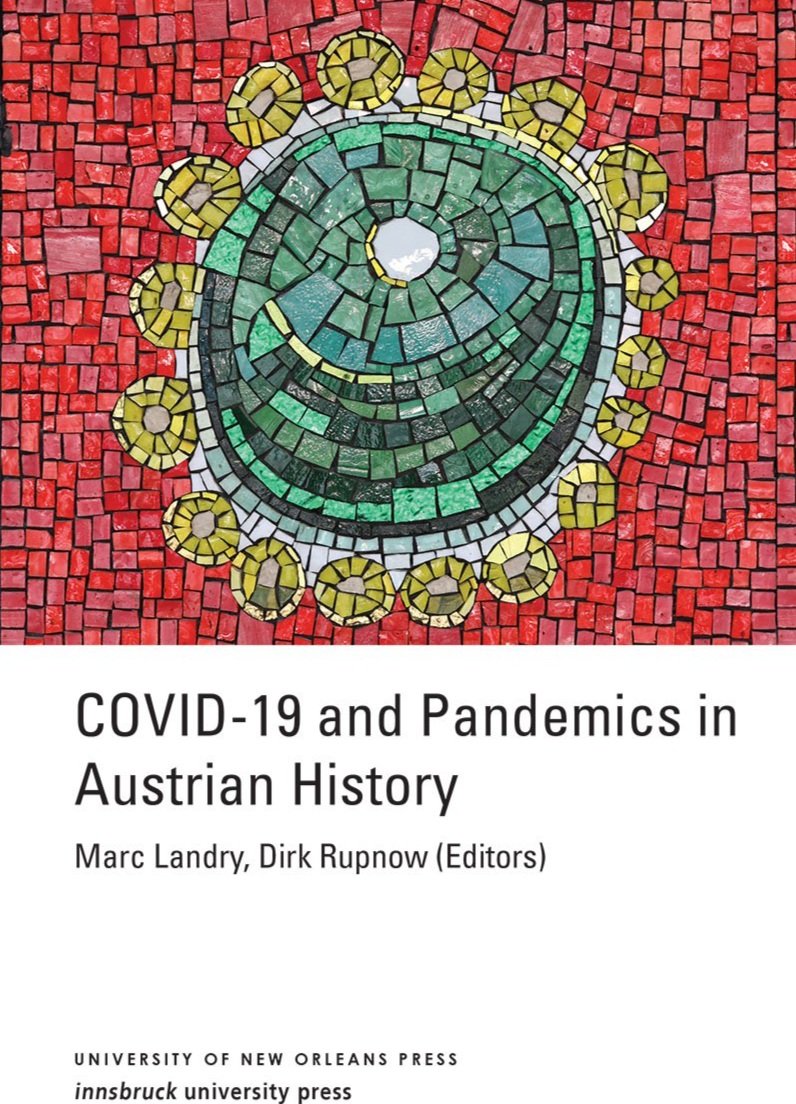
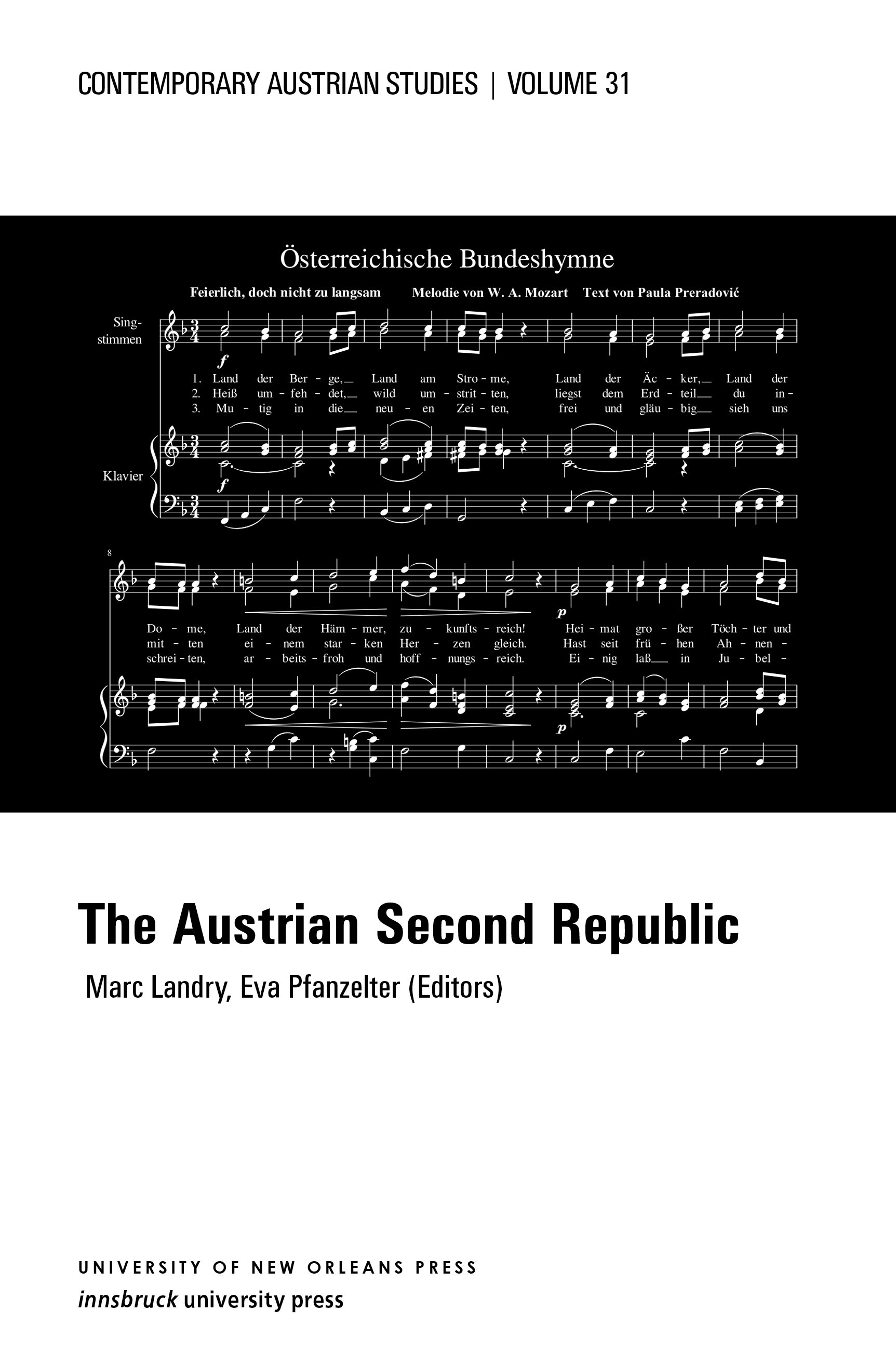
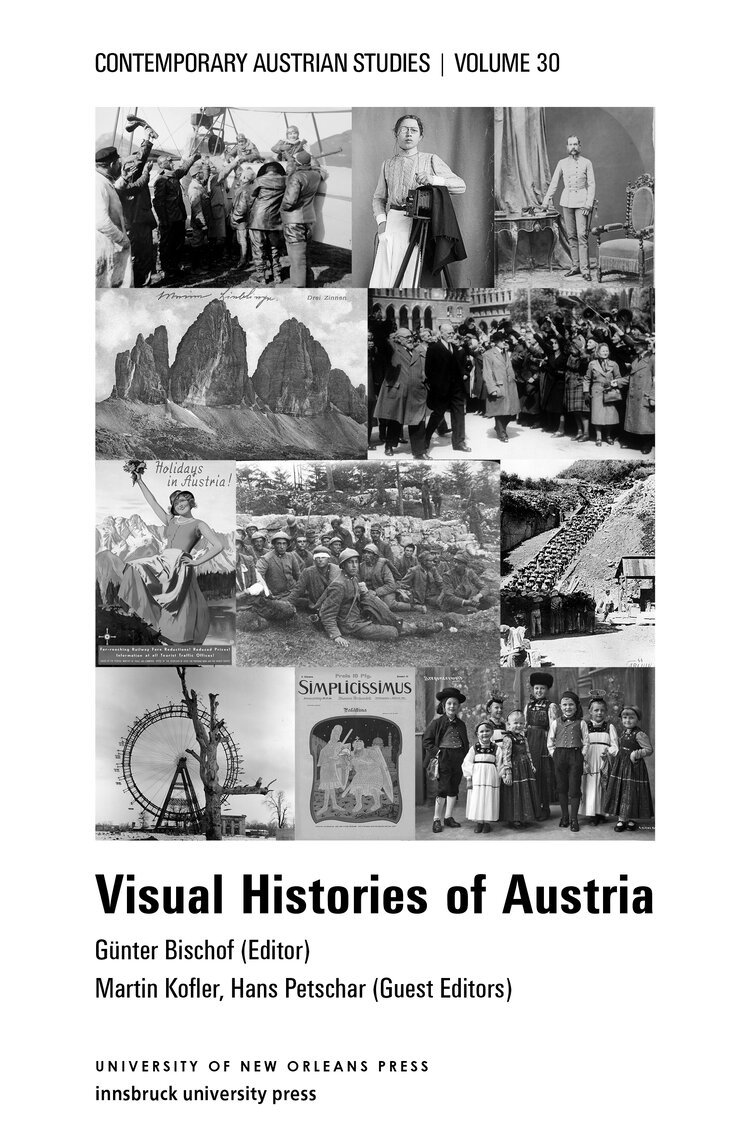
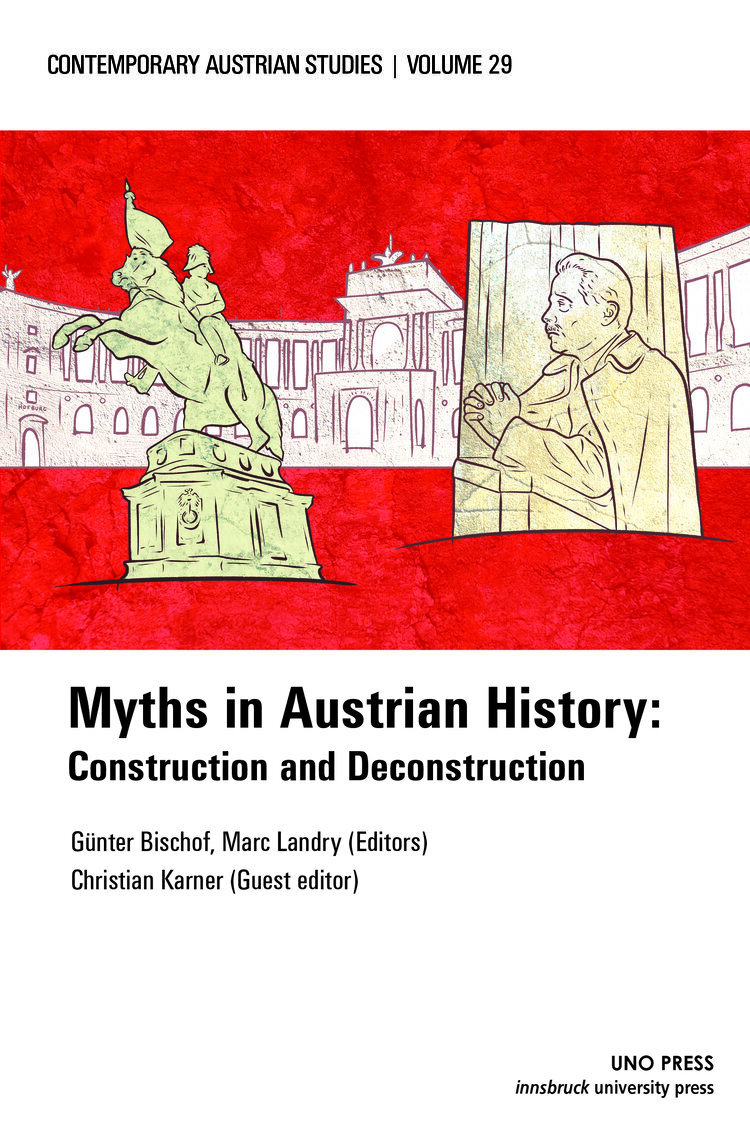
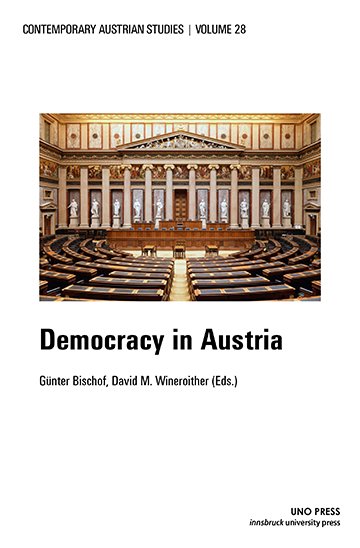
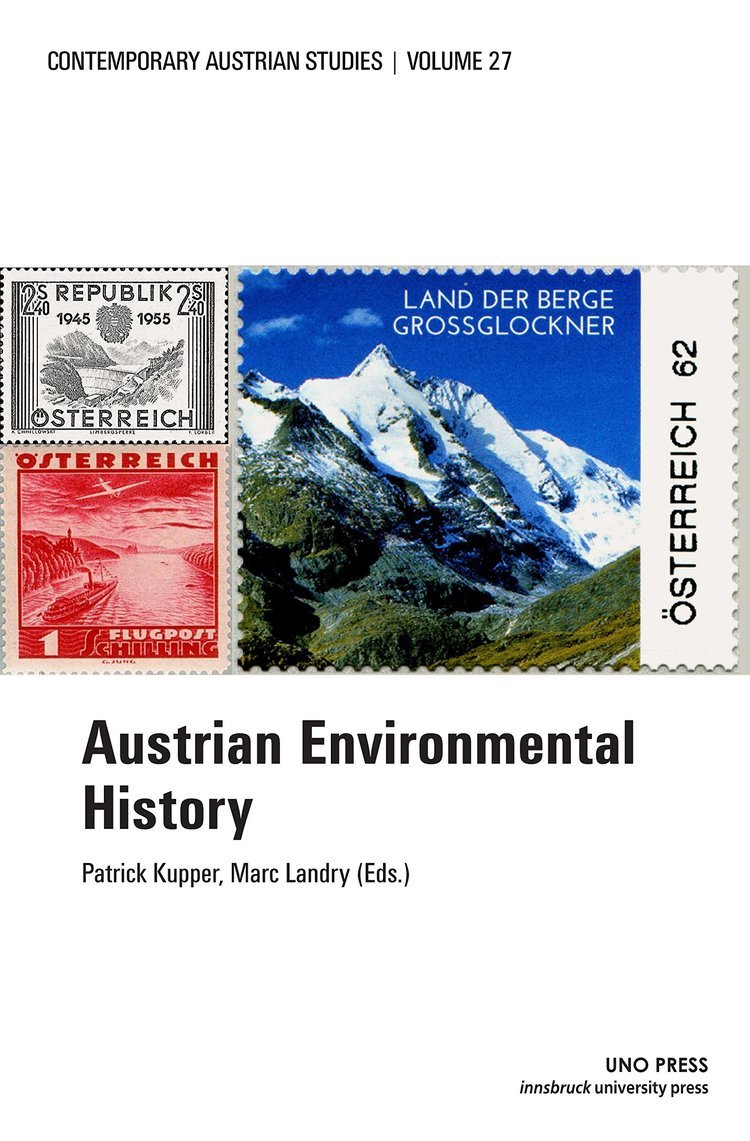
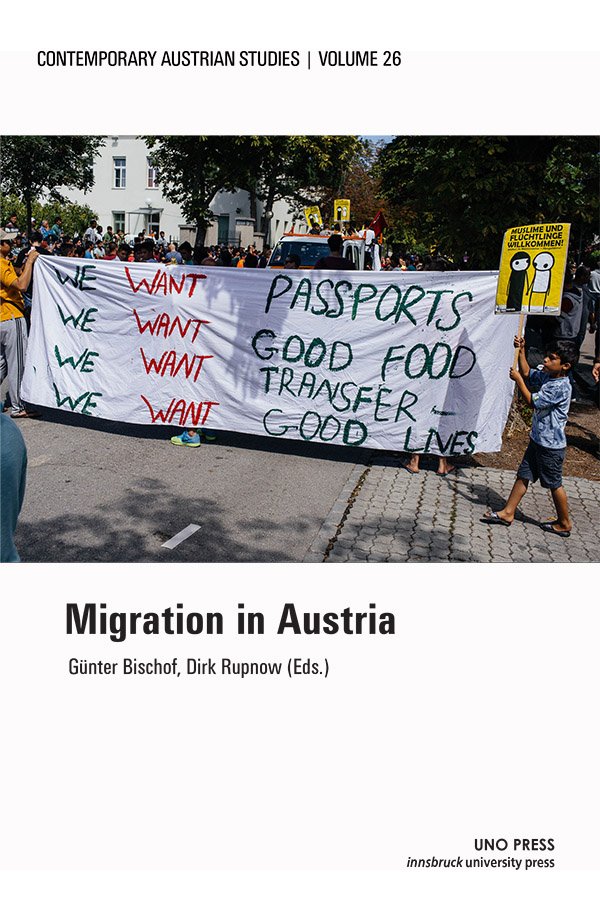
Volume 26 - Migration in Austria
This interdisciplinary volume offers methodologically innovative approaches to Austria’s coping with issues of migration past and present. These essays show Austria’s long history as a migration country. Austrians themselves have been on the move for the past 150 years to find new homes and build better lives.
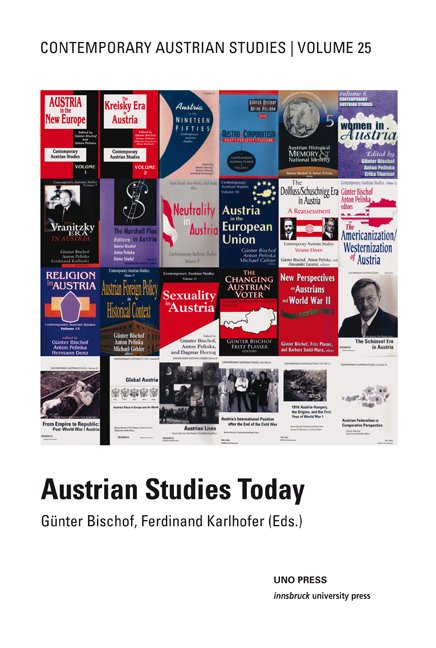
Volume 25: Austrian Studies Today
This volume celebrates the study of Austria in the twentieth century by historians, political scientists and social scientists produced in the previous twenty-four volumes of Contemporary Austrian Studies. One contributor from each of the previous volumes has been asked to update the state of scholarship in the field addressed in the respective volume.
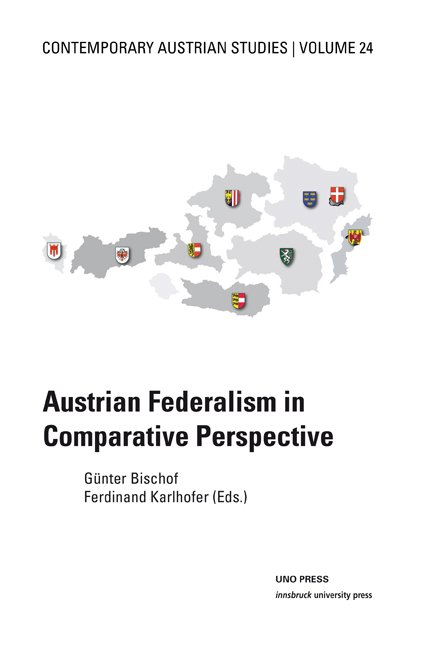
Volume 24: Austrian Federalism in Comparative Perspective
The contributions to this volume shine a light on history, presence, and future aspects of the Austrian federal system from historical, juridical, economic, and political science perspective. The volume is also the first book in English ever devoted to the Austrian version of federalism.

Volume 23: 1914 Austria-Hungary, the Origins, and the First Year of World War I
For the past 100 years some of the greatest historians and political scientists of the twentieth century have picked apart, analyzed and reinterpreted this sequence of events taking place within a single month in July/early August 1914.

Volume 22: Austria's International Position after the End of the Cold War
The Iron Curtain came down in 1989 and Austria found its international position dramatically changed after the end of the Cold War. Austria joined the European Union in 1995 and aligned its foreign policy with the EU. Unlike its neighbors to the East, it did not join NATO but continued its policy of neutrality. Austria strengthened its trade and investments in Central and Eastern Europe. Austria experienced devastating wars in its neighborhood in the Balkans and Austrian diplomats served as mediators in the region.
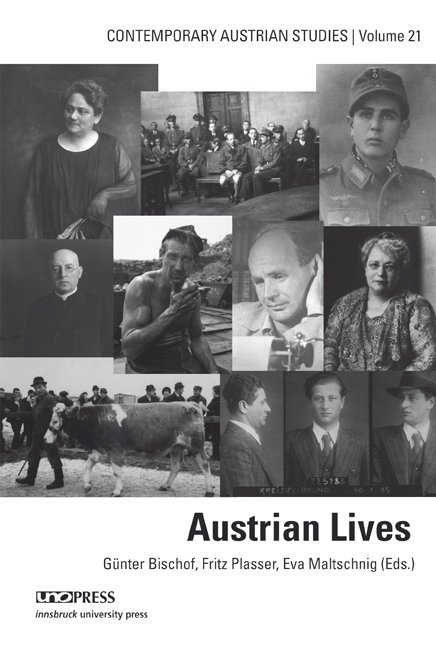
Volume 21: Austrian Lives
This volume of Contemporary Austrian Studies offers a cross-section of Austrian lives and biographical approaches to recent Austrian history. Here are what may be called traditional biographies of leading political figures through the twentieth century. We also suggest that the intellectual biographies of thinkers and professionals are fertile soil for biographical study.
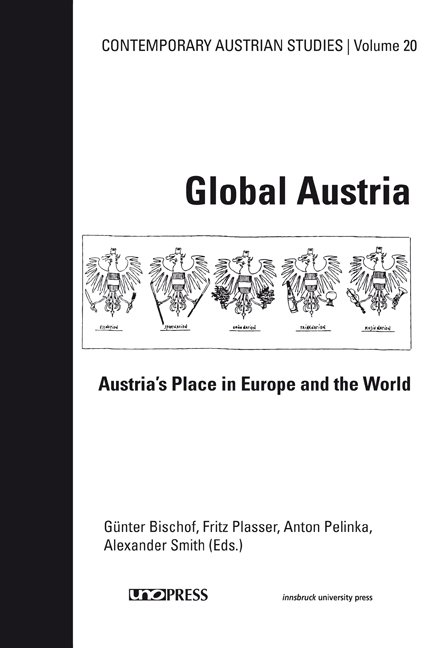
Volume 20 - Global Austria
After the dissolution of the Austro-Hungarian Monarchy, Austria transformed itself from an empire to a small Central European country. Formerly an important player in international affairs, the new republic was quickly sidelined by the European concert of powers. The enormous losses of territory and population in Austria’s post-Habsburg state of existence, however, did not result in a political, economic, cultural, and intellectual black hole.
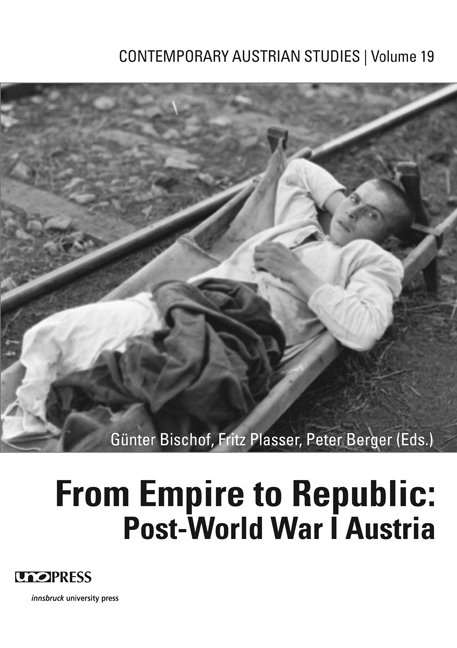
Volume 19: From Empire to Republic: Post World War I Austria
The breakup of the Habsburg Dual Monarchy and the redrawing of the political map of East Central Europe constituted a major experiment in “destroying the old, and creating the new” (O. Hwaletz). Historians are more inclined to study the rise of empires than their demise and aftermath.
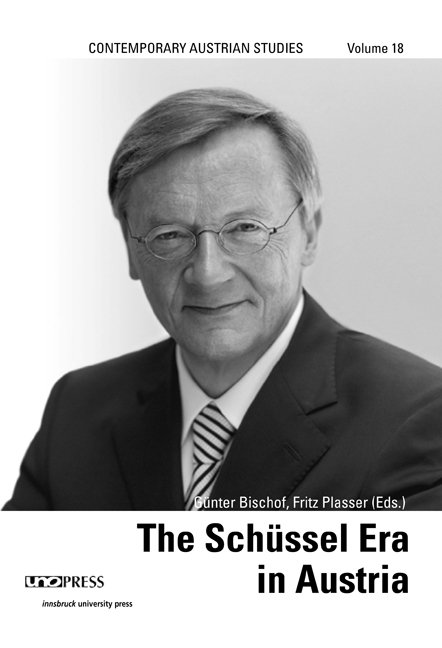
Volume 18: The Schuessel Era in Austria
Featuring essays by Peter Gerlich, Fritz Plasser/Peter Ulram, Heinrich Neisser, Reinhard Heinisch, Heinrich Niesser, Johannes Ditz, Josef Leidenfrost, Anton Pelinka et al., as well as a FORUM on the “disturbing creativity” of Austrian artists, book reviews and the review of Austrian politics.
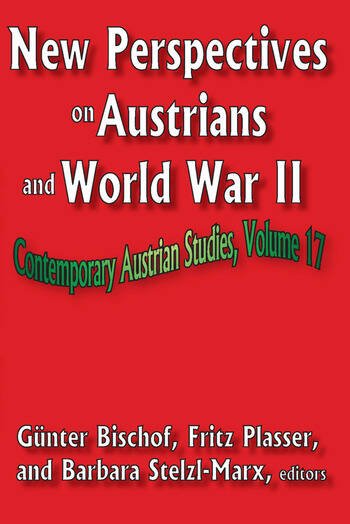
Volume 17: New Perspectives on Austria and WWII
For more than a generation after World War II, official government doctrine and many Austrians insisted they had been victims of Nazi aggression in 1938 and, therefore, bore no responsibility for German war crimes. During the past twenty years this myth has been revised to include a more complex past, one with both Austrian perpetrators and victims.
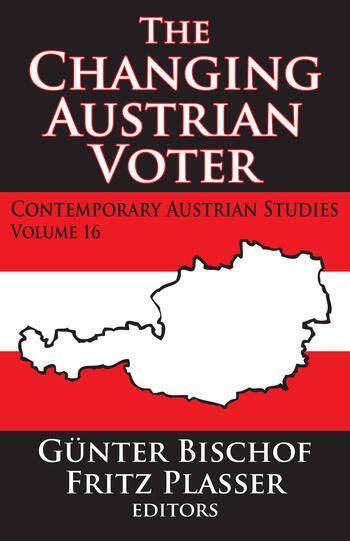
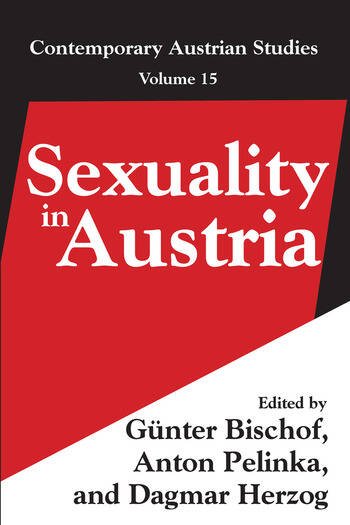
Volume 15: Sexuality in Austria
Scholars have increasingly been investigating human sexuality as an important field of social history in particular national cultures. This volume examines both continuities and changing patterns of sexual behavior in Austria.
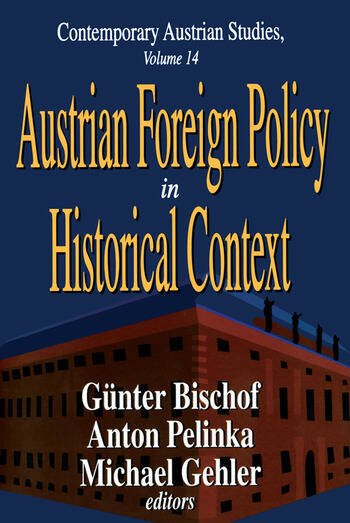
Volume 14: Austrian Foreign Policy in Historical Context
This volume covers foreign policy in the 20th century and offers an up-to-date status report of the study of Austria’s foreign policy trajectories and diplomatic options both in the historical and political sciences.
Volume 13: Religion in Austria
Like most European countries, Austria does not have a strict separation between state and church. Since the counter-reformation, it has been considered a country strongly influenced by Catholicism. Austrian attitudes towards religion derive from the Habsburg experience, when emperors and the Catholic Church acted in complete unison. This new volume in the Contemporary Austrian Studies series reevaluates this age-old tradition.
